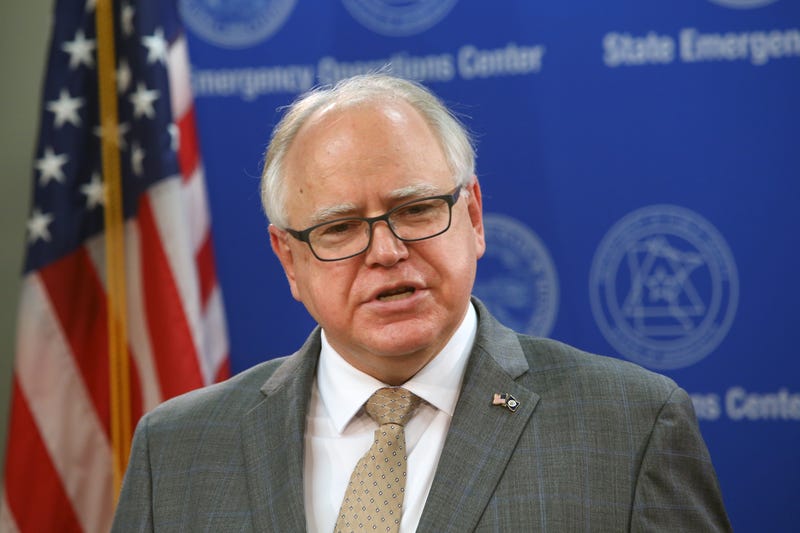
Gov. Tim Walz is set to announce his budget Tuesday ahead of the February budget forecast, but one major focus will be on a sweeping, broad education plan.
The branded Due North Education Plan revolves around racial and geographic equity with an emphasis around recouping progress loss during the pandemic, and includes efforts to train and retain teachers of color, close racial opportunity gaps and establish an equity office at the Education Department.
“If we as a state do not look directly into the mirror and address the racial inequities and systemic racism, we may not get another shot. This is our shot,” Walz said. “It starts with education, it stems from this and this plan can get us there.”
It also includes enrollment loss support, expanding early learning and career readiness, addressing punishment disparities along racial lines, more opportunities for students in Greater Minnesota and to “prioritize school funding on students who need it most.”
Justice Alan Page, who has been vocal in support of a state constitutional amendment guaranteeing the fundamental right to a quality education, said the plan addresses structural and systemic barriers that have negatively impacted children.
“Our education system over the past decades has failed to educate too many children,” Page said. “This plan, the Due North Plan, is a step and an important first step in changing that.”
Walz and Dept. of Education officials emphasized a return to in-person school for the mental and emotional health of students, but said with the current pace of vaccinations it could be toward the end of the school year before all students are able.
Deputy Education Commissioner Heather Mueller said graduation rates and MCA scores are some ways schools might measure progress.
“I think the way we have that conversation is not necessarily about accountability,” she said. “Accountability tends to come with it a lot of variety of connotations and what that means. What we’re actually talking about is how is it that we are going to continue to support and ensure that what we’re doing is working. How are we going to allow data to tell us the story and give us indicators of where to go next, what we should continue to do and what we should stop doing?”
Walz did not offer a funding figure for the plan but more information is expected to come in Tuesday’s budget address.Republicans like Rep. Ron Kresha criticized the plan as “too vague,” saying Walz should have solicited more input from the legislature.
“From the governor what I saw today was a two-page summary that really had no substance behind it,” Kresha said. “No mention of reading, math or graduation rates. I just don’t think aspiring for continued adequate education is going to work. I’ve been a big proponent of pushing forward the constitutional amendment to bring quality education, to have some bold changes. That was lacking in the governor’s presentation.”
Walz said there will have to be compromise.
“I don’t see that as a negative,” Walz said. “I can’t compromise on closing this achievement gap. I can’t compromise on Minnesotans’ safety. I can’t compromise on our students getting some ability to come back from COVID. That’s where I’ll make the case. My guess is on a lot of this you may be surprised in this area where we find more commonality.”
